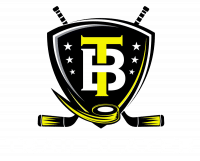5 Tips To Nail Your Next Media Interview
Media interviews are an important aspect of sports and hockey is no different. While players prepare for games through practice, repetition, research, and establishing good habits, the same cannot be said for interviews. Following a game, players are exhausted physically, mentally, and emotionally and often an interview is the last thing they want to be doing. Similarly, as they’re focused on an upcoming game or the next period, fielding questions is not their ideal scenario to maintain that focus. Even though it’s not always something a player is looking forward to, a media interview should be considered an opportunity. This is your chance to showcase the human side of the sport, connect with fans, showcase your personality, and communicate your message. Here are five simple tips to help you with your next media interview.
Practice, Practice, Practice
No player at any competitive level of hockey simply shows up a few minutes before puck drop ready to play the game. There are hours of preparation and routines that go into playing a game, and an interview shouldn’t be treated any differently. Take time to practice speaking in a mirror or try recording yourself on your phone answering some simple questions that an interviewer might ask. Review the recording and think critically about how you can do better. Watch interviews with players you admire. What do they do in interviews? How do they answer questions? You can also ask your parents, coach, or team’s media staff to help you practice. A mock interview is a great low-pressure scenario to practice and become more comfortable in interviews.
Ask Questions
Don’t be afraid to ask questions before an interview starts. The interviewer isn’t there to surprise you with questions or make you look bad, they’re there to create a story around your answers. Ask them questions beforehand about what they plan to ask, or even prompt them a possible question. Perhaps you had something interesting occur in your life recently and you want to take a few moments to talk about it. Let the interviewer know and they’ll be happy to include it in their interview.
Take Your Time
It’s an interview, not a race. It may feel like every pause you take lasts an eternity, but the reality is that pauses and breaks are natural parts of speech. After you’re asked a question, take a second to think about your answer and speak when you’re ready. A well-thought-out response will always come across better than a hastily made one.
Be Confident, Not Cocky
There is a thin line between coming off as confident versus coming off as cocky. Confident means you are sure of yourself and your answers. You’re clear and concise in your responses and believe in your abilities. Cocky means you’re bragging, you’re exaggerating your accomplishments and skills, and generally not taking the interview very seriously. If you’re asked about an upcoming playoff game, would you rather respond with, “Our opponent is a strong team with a powerful offense, but I think our defense has been playing well lately, our goaltender always gives us a chance to win and we feel prepared to play our game” or “I’m not worried about them, they’re not very good, and we’re going to beat them”?
Give Praise
Hockey is a team sport, and while you’re the one being interviewed, you’re often speaking for your entire team including the players and coaching staff. Always try and give praise where it’s due. While you may have had a hat trick and the winning goal, other players passed you those pucks, a goalie made saves at the other end to give you those scoring chances, and your coaches prepared you for success.

